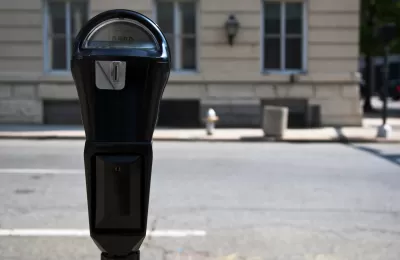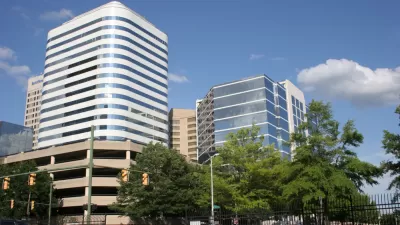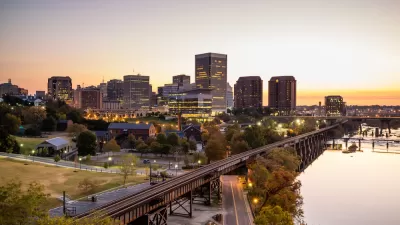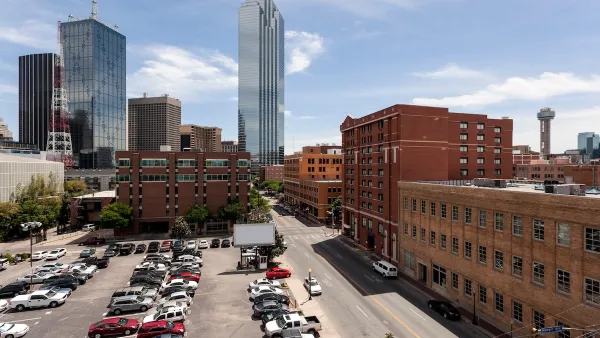The Virginia city is replete with underused off-street parking lots, which city councilors hope to make available for parking at more times while encouraging transit use.

Richmond, Virginia joined the growing list of cities to repeal parking minimums as one strategy for making housing more affordable and less costly to build, reports Elizabeth McGowan in Next City.
The move was, surprisingly, approved unanimously by the city’s Planning Commission and city council. City Councilor Andreas Addison, who has been a staunch supporter of repealing parking requirements, points out that there is plenty of parking space in the city, it’s just often designated for one single use, making it obsolete the rest of the time. “When that data was presented, I realized we don’t have a parking problem,” said Addison, “We have a lack-of-access-to-parking problem.”
Addison “envisions the new measure will ‘reinvent paved space’ by introducing the concept of shared parking in off-street lots. Before, those spaces could only be used for the particular purpose laid out in the zoning code.”
Meanwhile, the Greater Richmond Transit Company (GRTC) is still offering free rides on its buses and opened a high-capacity bus rapid transit line five years ago. “Addison is hopeful Richmond’s decision to scale back on parking lots can be a model for other Virginia cities intent on reshaping how people move around.”
FULL STORY: Richmond Scraps Parking Space Rules In An Effort To Curb Transportation Emissions

Planetizen Federal Action Tracker
A weekly monitor of how Trump’s orders and actions are impacting planners and planning in America.

Maui's Vacation Rental Debate Turns Ugly
Verbal attacks, misinformation campaigns and fistfights plague a high-stakes debate to convert thousands of vacation rentals into long-term housing.

Restaurant Patios Were a Pandemic Win — Why Were They so Hard to Keep?
Social distancing requirements and changes in travel patterns prompted cities to pilot new uses for street and sidewalk space. Then it got complicated.

In California Battle of Housing vs. Environment, Housing Just Won
A new state law significantly limits the power of CEQA, an environmental review law that served as a powerful tool for blocking new development.

Boulder Eliminates Parking Minimums Citywide
Officials estimate the cost of building a single underground parking space at up to $100,000.

Orange County, Florida Adopts Largest US “Sprawl Repair” Code
The ‘Orange Code’ seeks to rectify decades of sprawl-inducing, car-oriented development.
Urban Design for Planners 1: Software Tools
This six-course series explores essential urban design concepts using open source software and equips planners with the tools they need to participate fully in the urban design process.
Planning for Universal Design
Learn the tools for implementing Universal Design in planning regulations.
Heyer Gruel & Associates PA
JM Goldson LLC
Custer County Colorado
City of Camden Redevelopment Agency
City of Astoria
Transportation Research & Education Center (TREC) at Portland State University
Jefferson Parish Government
Camden Redevelopment Agency
City of Claremont





























